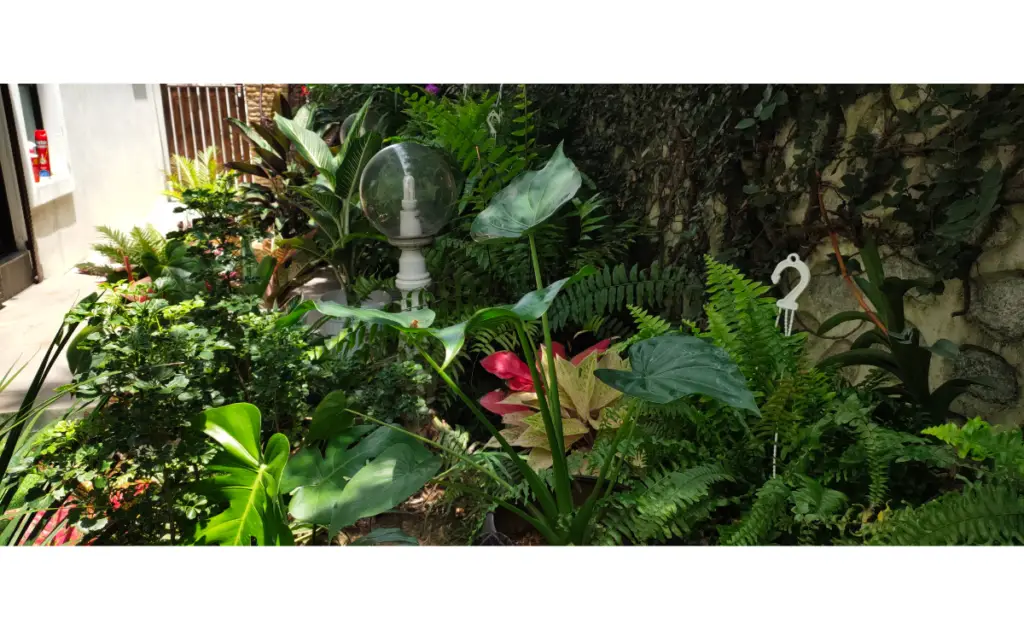
To start a garden first choose if you want a flower, vegetable or mixed garden. You will need to pick a space and determine if you are planting in ground or using garden beds and pots. If planting vegetables chose ones you want to try, many vegetables you can plant that taste different or aren’t available in stores. Flowers and vegetables can be grown from seed or starters. These are somethings to consider on how to start a garden.
A garden adds value to your home in a significant way. While this is the case, not many people fancy the idea of starting a garden in their home. Some see it as a very tedious job while others think it’s a costly affair to manage a garden. The truth of the matter is that having a garden is a great idea and it’s something you can do with ease as long as you have the right knowledge. In this article, we’ll look at several things you should know about starting a garden.
How Much Is The Average Garden?
This is an important question especially for someone without much experience about starting a garden. From the onset, it’s important to understand that the cost of a garden depends on various things. Not all gardens are the same. Some will be costlier than others. For example, the features of a garden determines how much it costs. You many choose to plant vegetables or flowers. The difference in features is enough to bring a variation in costs for a garden. Also, the size of a garden matters a lot in how much it costs. In most cases, a large size costs higher than a small size. This also brings the idea of location. Depending on the location of your garden, you may have to spend more or less. Additionally, the level of maintenance required for a garden influences how much it costs.
The bottom-line here is that it will cost you to start a garden. You’ll have to carefully consider different factors to figure out how much it will cost you to start and maintain your garden. Based on my experience, the average garden costs around $700. However, as you get started, you can have a smaller garden to cut costs and then expand it later. For more information on what costs may occur when starting a garden, check out our article How Much Does a Garden Cost.
How Often Do I Need To Water My Garden?
Water is important for your garden. It’s the ingredient that will keep it alive and thriving. So, you should make sure you water your garden richly. Now, the question that lingers in the minds of many is when they should water their gardens. For someone without prior experience, navigating through the watering question can be a challenge. Well, there are a number of aspects that determine how often you should water your garden. What is the type of soil in your garden? Are your plants potted or not? How is the weather of your area? These are factors that should inform how often you should water your garden. For example, during the summer, watering your garden properly is valuable for it to remain healthy.
Generally, it’s advisable to water once or two times in a week. As you water, you should ensure that you water thoroughly. This means that you should water the plants fully. The best times water garden plants is during the early morning and late evening hours. The reason for this is to avoid excessive evaporation of water. If you water during the day, the heat of the sun will consume much of the water and the plants will suffer. Watering during the above-mentioned times will ensure that plants retain as much water as possible.
Which Direction Should Vegetable Garden Face?
The position of your garden plays a major role in its healthy growth. The direction your garden faces determines the amount of sunlight it receives over the course of the day. Plants need sunlight to make food. The process of photosynthesis, which is important for food production, relies on sunlight. So, your garden should be in a place that receives enough sunlight for this process to take place. Most garden plants will need around 6-8 hours of sunlight daily to be healthy. On the same note, you should avoid exposing your garden plants to areas with scorching sun as they can overheat.
The morning sun is the best since the afternoon sun can be too hot for your garden. For this reason, it is prudent to choose spots that receive adequate morning sunlight and partial shade during the afternoon. Garden experts affirm that a garden that faces south receives adequate sunlight throughout the day. If you can, ensure that your garden is on the southern side of your home. If this option isn’t possible, have it on the east or west of your home. This will also allow your garden to receive enough sunlight. An important tip is to avoid planting your garden near a tall tree or a large shade that prevents the absorption of enough sunlight. If you’re worried that your garden won’t get enough sun, check out our article on vegetables you can grow in the shade!
How Do I Know If My Soil Is Good For My Garden?
There are particular ways to tell if your soil is good for your garden.
The Presence of Soil Organisms
The first thing to check is soil organisms. Healthy soil should be rich in organisms. This is one thing you can check to know if the soil in your garden is good. All you need to do is to dig a hole around 6 inches deep. Check the down the hole for around 4 minutes. If you see 10 and above soil organisms it’s an indication that your soil is rich for garden plants.
Presence of Earthworms
Another indicator of good soil is the presence of earthworms. Worms are good for aerating the soil, thus making them a good addition to the soil. If you see worms in the soil in your garden, it’s an indication that it’s good for garden plants.
Workability
Workability is also a factor that determines how good your soil is. If your soil doesn’t allow you to till with ease, its level of workability is low. This type of soil isn’t good for your garden. However, if it’s workable and has good circulation of nutrients and water, you can rely on it for good results.
Root Development
Root development should also help you to know whether the soil in your garden is good or not. Essentially, good soil has a healthy root development. To test the root development of your soil, you can pick a plant and dig it up and examine the root. If the roots have fine strands, this should tell you that the soil is good.
We did an in-depth look at how to test your soil here.
How Wide Should a Garden Bed Be?
When you are considering starting a garden, you should put in mind how wide the garden bed should be. In order to plant crops and take good care of them, it’s prudent to consider the measurements of the garden bed. Out of all the measurements of a garden bed, the width of a garden bed is the most significant because it builds the quality of the soil through faster draining of water and loosening the soil. Generally, the ideal width of a garden bed is around 4 feet. This means that from one side to the middle should be around 2 feet. This measurement is optimal for an adult to be able to reach the other section of the garden bed.
How Often Should I Fertilize My Garden?
Fertilizing your garden is a great idea as it keeps it productive. The plants will be vigorous. If you see the plants in your garden growing slowly or begin turning yellow, this is an indication that you should apply fertilizer. If the plants appear green and healthy, you can hesitate applying fertilizer. It’s important to take note that too much fertilizer isn’t good for your garden. It can end up doing more harm than good. Specifically, your plants may get burned because of the chemical content in the fertilizer. Therefore, you have to be careful when applying fertilizer that you do it in the right way and frequency.
If you’re growing vegetables in porous and well-drained soil you should feed them well. Normally, you’ll apply fertilizer every 3-4 weeks over the course of the growing season. Even when fruits appear, you should keep applying for production to continue. If you’re growing vegetables in clay soils, you’ll need to apply less fertilizer compared to the ones in sandy soils. It’s okay to apply fertilizer every 4-6 weeks after planting your crops. If your garden has organic soil, a little more fertilizer is recommended. A valuable tip before applying fertilizer to your garden would be to test your soil to check the nutrients available. This will allow you to choose a fertilizer that contains the missing nutrients.
Indeed, starting a garden requires one to have sufficient knowledge. Knowing the fundamentals of gardening goes a long way to help you make the right decisions. Now that you’ve known how to start a garden, you can move with confidence to have your own in your home. There are plenty of options to choose from in regards to the types of plants to grow. A popular option for your garden is planting vegetables. Regardless of what you choose to plant, the most important thing is knowing how to maintain your garden properly. As long as you have the right tools and capacity, you can start a garden and maintain it correctly.

